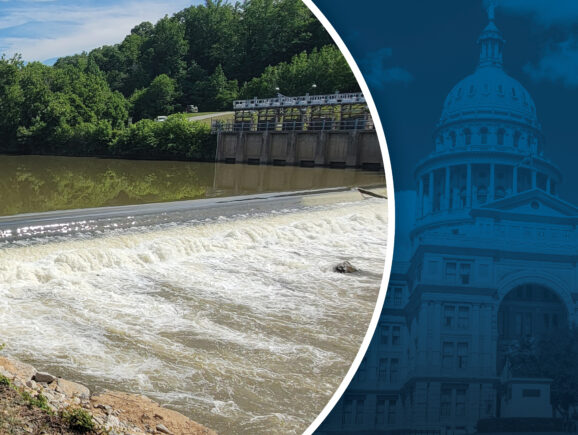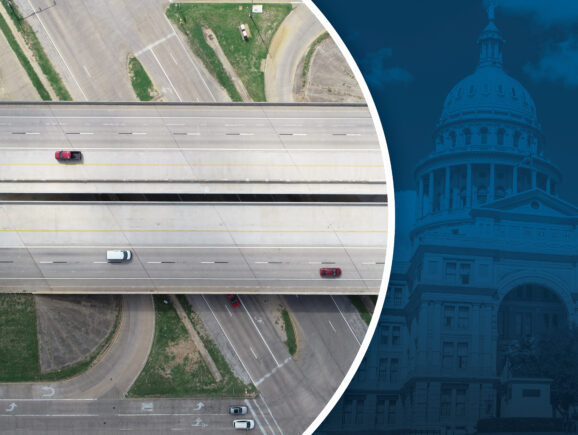The Impact of New Texas Laws, Part 3: Local Authority
The Texas Legislature made significant changes to local governing authority during the 88th Regular Session in early 2023. While the specific impacts of some new limitations are still being clarified — including through a court challenge — municipal leaders will need to understand how their growth, development and management plans could be affected by a flurry of laws, most of which took effect at the beginning of September.
These are some of the main new laws related to local governance:
Annexation and Extraterritorial Jurisdiction
Senate Bill 2038 allows residents of an area with a population under 200 to petition to leave a municipality’s Extraterritorial Jurisdiction (ETJ). The municipality must immediately release the area if the petition receives the required number of signatures. If an area’s population is more than 200, residents can request an election on leaving the ETJ.
Some specific areas are exempt, such as the ETJ area around military bases or within industrial district designation or strategic partnership agreements. In a key change, a city’s ETJ as it existed on Jan. 1, 2023, cannot be expanded without property owners explicitly requesting to join the ETJ.
House Bill 586 shifts the annexation burden for right of way. Cities can only annex a right of way if the owner requests it or the city notifies the owner in writing at least 61 days before the annexation.
Preemption
HB 2127 is the most prominent and broad-ranging new law restricting municipalities’ regulatory power. It prohibits adoption of any ordinance in a field already covered by state law unless the statute explicitly allows it. Houston and San Antonio are among the cities challenging HB 2127 in litigation that could be lengthy. In the meantime, local authorities should consult the underlying state law basis for ordinances they want to adopt. For example, the Texas Water Code contains the regulatory basis for a variety of requirements typically enforced via local provisions at the city and county levels.
Other new limits include:
- SB 784: Only the State can regulate greenhouse gas emissions.
- SB 1017: Cities can’t restrict the use, sale or lease of an engine based on fuel source (such as lawn equipment).
- SB 1860: Cities must receive approval to propose a local climate charter/policy or amend their city charter regarding climate.
- HB 1750: To require licenses and permits for agricultural operations (broadly defined), cities must demonstrate a compelling government interest backed by studies/expertise.
Subdivisions and Platting
HB 3697 and HB 3699 are companions that alter county and municipal subdivision authority and introduce new obligations, including:
COUNTIES (HB 3697)
- Use of plat submission calendars is now codified as explicitly allowed.
- The 30-day processing “shot clock” can be extended indefinitely in 30-day increments on request of the applicant or if a takings impact analysis is triggered.
- Plat approval authority can be delegated. Any plat can be administratively approved, approved with conditions, or disapproved, provided that disapproval has an appeal to Commissioners Court.
- Counties need to publish submission requirements by Jan. 1, 2024.
- Preserving corridors requires an agreement between TXDOT and the county.
MUNICIPALITIES (HB 3699)
- Use of plat submission calendars is now codified as explicitly allowed.
- Clarifies the ability to have engineering criteria.
- The 30-day processing “shot clock” applies only to plats, not site plans and not subdivision construction plans.
- The 30-day processing “shot clock” can be extended indefinitely in 30-day increments on request of the applicant or if a takings impact analysis is triggered.
- Plat approval authority can be delegated. Any plat can be administratively approved, approved with conditions, or disapproved, provided that disapproval can be appealed to a municipal authority (Planning Commission or City Council).
- Cities need to publish submission requirements by Jan. 1, 2024.
- Cities can only require ROW dedication for projects in a funded CIP.
Many cities and counties are already acting on this legislation. The most common adjustment has been to delegate subdivision plat approval to staff, with an appeals process, if the subdivision does not require waivers or variances. Plats involving waivers or variances instead route to the Commissioners Court or appropriate municipal authority.
Zoning, Building and Fees
SB 929 requires cities to give business property owners more notice and compensation if zoning changes will mean the property’s operations are no longer allowed in that area. Instead of using the “amortization” process when a business becomes “nonconforming” to permitted zoning use, cities must notify business owners by mail and offer compensation at fair market value they can no longer operate at their location.
HB 1922 makes building permit fees automatically expire 10 years after they’re adopted, though they can be reauthorized after a public hearing. (It’s a good practice for cities to regularly update their fees based on cost of service and hold a public hearing on the fee schedule during annual budget adoption.)
HB 3492 prohibits municipalities and counties from setting inspection fees based on the cost of constructing or improving the public infrastructure for a subdivision, lot or related property development. Instead, the fees must be based on the actual cost to review and process the engineering or construction plan or to inspect the public infrastructure improvement. Those fees must be published annually, along with the hourly rate and estimated time municipal or county employees spend on the inspections.
The new law also prohibits municipalities and counties from requiring developers to disclose the value or cost of construction or public infrastructure improvements in a subdivision to get it approved, except as required by FEMA to participate in the National Flood Insurance Program.
HB 1526, which applies to cities with more than 800,000 residents, caps the amount of dedicated parkland they can require in a new development at 10%.
Funding and Economic Development
HB 5 outlines an economic development program designed to create new, high-paying, permanent jobs, encourage financially beneficial economic development, and provide competitive incentives to attract large-scale manufacturing projects to Texas. It encourages infrastructure development and promotes the onshore relocation of offshore manufacturing facilities and allows school district participation.
SB 1332 increases the maximum amount for a historic courthouse project from $6 million to $10 million and creates the Historic Infrastructure Sustainability Trust Fund for the purpose of maintaining, preserving and restoring historic sites.
Learn more about major legislation affecting funding for water-related projects, including SB 28, Senate Joint Resolution 75 and HB 3582, here: The Impact of New Texas Laws, Part 1: Water
How Freese and Nichols Can Help You
As a full-service engineering/planning/architecture firm, we are dedicated to helping our clients plan and provide for their communities’ infrastructure needs. In addition to offering wide-ranging technical expertise, we monitor state and federal legislation from conception to law so we can understand impacts and help match projects with potential funding sources. Our holistic approach can guide you to successfully complete any size project.
We also can help with other adjustments to new laws, including:
- Understanding the basis for local regulations under state law
- Supporting discussions about creating Industrial Development Districts and Strategic Partnership Agreements
- Updating county and city subdivision regulations and city and county zoning regulations
- Developing and managing capital improvement plans and programs, including funding approaches
Learn more about our services:
For questions, contact Chance Sparks, chance.sparks@freese.com, 512-617-3156; Travis Kelly, travis.kelly@freese.com, 214-709-8417; or your Freese and Nichols project manager.




